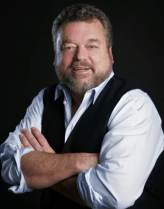By Christopher Gilbert, Ph.D.
“What the virus demonstrates most loudly is that despite our independent choice in vaccinating or not, we are all leaves on the same tree, and we must act accordingly. Therein lies the real cure!”
There is no right way to do the wrong thing no matter how many ways we convince ourselves otherwise. This is especially true when it comes to the deadly decisions demonstrated in the tragic rise in hospitalizations and deaths among the unvaccinated.
Starting in 2020, the global pandemic became a searing spotlight on our interconnectedness and dependence upon one another. This highly volatile virus is truly an acid test for our nation’s levels of cooperation. Vulnerability to this disease is shared across cities, states, the nation and around the world by all populations, age groups, economic and social classes, national sovereignties, education levels, political and religious proclivities, races, ethnicities, genders and more. There is no protection for anyone unvaccinated. 
Beyond vaccines, the cure for this universally shared bug is a wide-spread and readily used inoculation effort. What the virus demonstrates most loudly is that despite our independent choice in vaccinating or not, we are all leaves on the same tree, and we must act accordingly. Therein lies the real cure!
Our own moral progress enables us to consider our impact on others. For the long-term survival of family, community, city and state, we are tasked by this pandemic to operate under a more universal morality. Independent choice making without considering our impact on others is moot!
Perhaps as an alternative, we should consider the classic tale of the ‘Good Samaritan.’
The story of a man who risks himself on a dangerous road to help another poor, unfortunate traveler, left beaten and robbed, is not a story of punishment or reward, sainthood or piety. Rather, it is a parable about the human capacity to develop and demonstrate the three pillars of wisdom- rational intelligence, emotional intelligence, and spiritual intelligence.
Rational intelligence is knowing the right thing to do. Emotional intelligence is feeling right about what you do. And spiritual intelligence is doing the right thing sometimes despite what you know or how you feel about it. In this way, the Good Samaritan urges us to step beyond our own concerns and into the shoes of others, even our enemies, in order to understand their concerns.
What’s the difference between the person who stopped to help and all the others who passed the victim by? It is the framing of the questions they asked of themselves. To the selfish, the important question is, “If I stop to help this man, what will happen to me?” To the empathetic and selfless, the important question is, “If I don’t stop to help this man, what will happen to him?”
In the second question—and its answer— are evidenced all three pillars of wisdom.
Perhaps then, there is far more benefit in framing the question about vaccination not around what will happen to me if I get it, but rather, what will happen to others if I do not get vaccinated. Especially those still unvaccinated and at high risk.
The very way the question about vaccination is framed adds poignancy to the concept that the quality of our lives is not measured in the answers we find, but in the questions we ask.
So, what if we ask the right question?
There’s a lot of voice-raising right now over our liberties, as different entities struggle to corral this pandemic. Individuals and groups focused on individual freedoms clash with those who prioritize the long-term health of the community. From an ethical perspective, especially in a crisis, if spread of a virus is accelerated by groups and guilds who prioritize individual freedoms but is eradicated in an environment focused on common moral rights, such as everyone’s right to health and safety, the latter community takes precedence because it also more effectively protects the individual. The big push for the Rubella measles inoculations in the 70’s, seat belt laws, no smoking buildings and restaurants, etc., are long standing examples of the right priorities that protect individuals here.
As with global warming and pollution, COVID-19 requires no passport, visa or citizenship card to cross borders and influence entire societies. Manmade boundaries and national sovereignties prove to be no inoculation from its affects. As a people, we face this sickness together; we fight this sickness together; and we finish this sickness together.
Selflessness is a part of the norms in every society. In that regard, selflessness is a universal virtue. We’ve seen it demonstrated here countless times. Consider during 9/11 how the first responders and others acted so selflessly to rescue and minimize injuries and deaths. What is Covid doing to our country but creating injuries and deaths now on a daily basis.
The call for selflessness is what is being trumpeted to all of us now. Believe it or not, when it comes to vaccination one person can make a global difference- save the world you might rightly say. Is the effect of one person making the right, ethical choice to vaccinate miniscule? It certainly feels that way. Still, saving the world aside, I am reminded of a quote by the famous American cultural anthropologist Margret Mead, “Never doubt that a small group of thoughtful, committed citizens can change the world. Indeed, it is the only thing that ever has.”
Christopher Gilbert, PhD, is the author of the bestselling There’s No Right Way to Do the Wrong Thing and his newest release, The Noble Edge: Reclaiming an Ethical World One Choice at a Time, is an inspirational conversation about truth and trust. You can find more information about Chris Gilbert here: www.NobleEdgeConsulting.com Watch the book trailer here: https://bit.ly/NobleEdgeBookTrailer.




